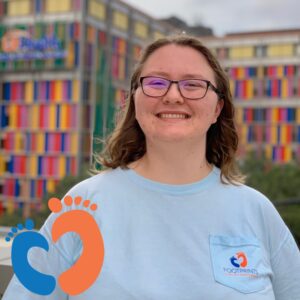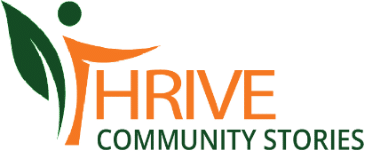Giving What I Couldn’t Get
 Bone cancer at 13 isn’t what I would call the normal childhood experience, but it was mine. Osteosarcoma led to me getting an above-knee amputation on my right leg. From that point on, I was pretty much left on my own to deal with the consequences and challenges of being a newly disabled preteen. Simple problems like not fitting in, troublesome teachers, and after-school activities were all made so much more complicated when you combined them with learning how to walk again. I was always told that I handled my limb loss well, that I inspired people. I didn’t feel inspiring, though. I just felt like I was struggling to redefine myself in this new life I had going for me.
Bone cancer at 13 isn’t what I would call the normal childhood experience, but it was mine. Osteosarcoma led to me getting an above-knee amputation on my right leg. From that point on, I was pretty much left on my own to deal with the consequences and challenges of being a newly disabled preteen. Simple problems like not fitting in, troublesome teachers, and after-school activities were all made so much more complicated when you combined them with learning how to walk again. I was always told that I handled my limb loss well, that I inspired people. I didn’t feel inspiring, though. I just felt like I was struggling to redefine myself in this new life I had going for me.
During college, I got to volunteer with a special group that worked with immunocompromised kids in the local hospital. This was something I was very passionate about, and I loved the opportunity to use my personal experiences with pediatric cancer as a way to help other kids feel better during such difficult times. One day, though, I got asked by a medical professional to visit this one patient to help set up a game system. I walked in and told them what I was there for. The dad-out of nowhere-asked if I used a prosthesis.
This baffled me because the volunteer uniform was khakis, so you couldn’t actually see my prosthesis. No one had noticed during my time volunteering so far. So I said yes and asked him how he knew. With a short gesture to his kid in the bed, he said they were on the lookout for that sort of thing. I turned around and took my first good look at the kid. He had just gotten an above-knee amputation, almost just like mine. I felt my heart singing in my chest, especially when they asked if I could stay and talk for a while. I wholeheartedly said yes, and I spent 20 minutes past my shift ending giving every single piece of advice I could think of. Anything that I had wished that someone had given me before I’d started my recovery and adaptation journey. I could see the relief on all their faces when they heard that, while the path ahead of them was hard, it wasn’t anywhere near impossible. That their kid would be able to go on and have a normal, happy life just like everyone else, and that there were resources like the Amputee Coalition out there to help even more on their journey.
That’s what limb loss and limb difference means to me, and why I think the Amputee Coalition is so important. Getting that chance to share my experiences and to help someone else have an easier time meant absolutely everything to me. It helped them, but it helped me in ways that I don’t think anyone else could understand. It helped me come to terms with those struggles I had gone through, those lessons I had to push through on my own. And it made me realize how much I wanted to make helping others a part of my life. The Coalition is an opportunity and support system to do those things. They connect me and so many others with limb loss and limb differences to others in our communities so that none of us ever has to feel as alone as I felt when I was struggling as a kid. That means everything to me and, I think, to everyone else who goes through these kinds of struggles. Community keeps us together, and helps us keep moving forward, so we can enjoy our lives to the fullest. Whether we’re different or not.

